Tall garden flowers: varieties and description
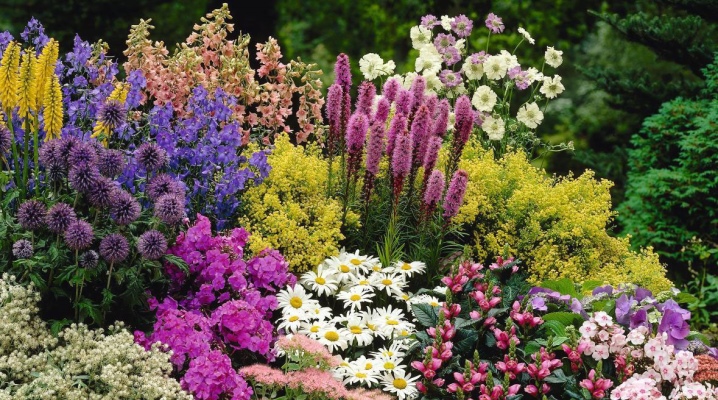
Tall garden flowers will decorate the garden at any time of the year. In height, they reach more than 1-1.5 m, and some representatives can grow even higher.
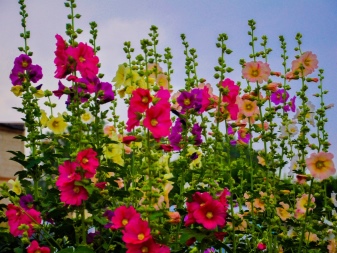
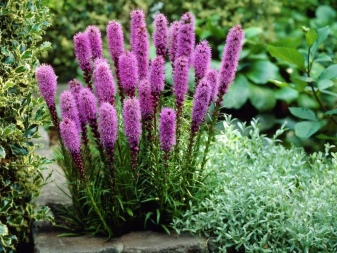
general characteristics
Tall garden flowers are present in every flower bed, because without them a flower garden in the garden or in the country will not have such a beautiful appearance. They can be both perennial and annual. Flowers differ in different characteristics, colors and requirements for growing and care, but all of them are united by a rather high growth - from 100 cm. Most often, perennials are planted, because they are less whimsical. Tall plants are planted mainly in the background of flower beds, as separating elements, as well as along fences or walls.
Often with their help, they cover not very attractive places in the garden or in the summer cottage. The only disadvantage of such plants is that tall varieties must be tied up, otherwise the stems will bend to the ground.
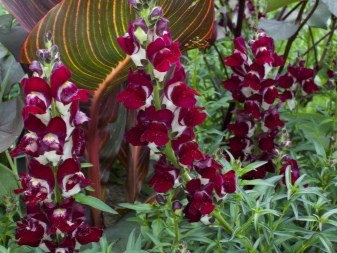
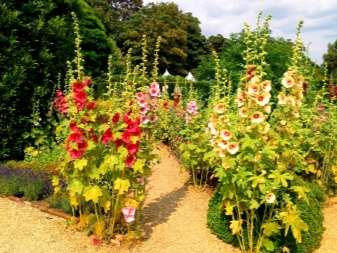
Varieties
Tall garden flowers are of different types and, accordingly, differ in flowering period. Most of them are summer blooming, decorating the garden with a riot of all kinds of colors. However, there are many tall flowers that bring a bright grace to the autumn landscape, in addition, they are quite frost-resistant. Among the tall varieties, there are a lot of unpretentious plants that do not require special care.
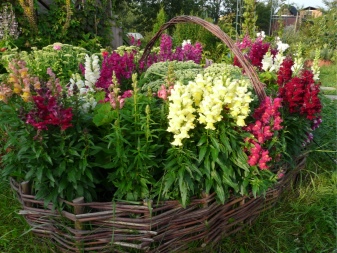
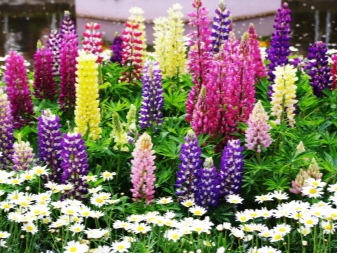
Blooming in summer
Consider the most popular tall crops, able to decorate the site on summer days.
- Aconite reaches 1.5 m in height. It blooms in blue, purple, white, yellow and pink tones.
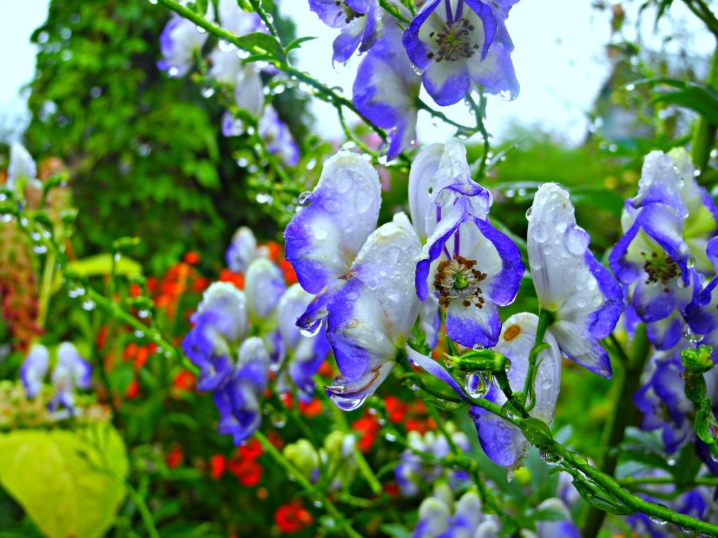
- Verbeynik cage - it is a variety with large pyramidal inflorescences. The color of the flowers is white.
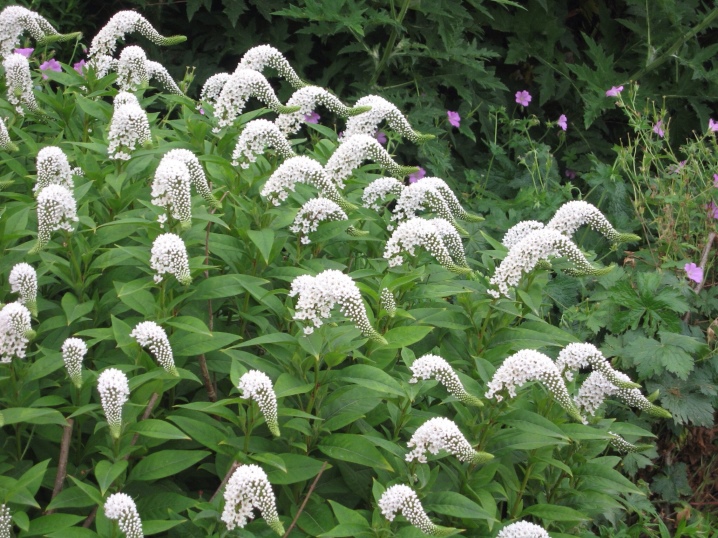
- Delphinium or larkspur - herbaceous perennial with large inflorescences of various colors (except yellow). The maximum can reach a height of up to 2 m.
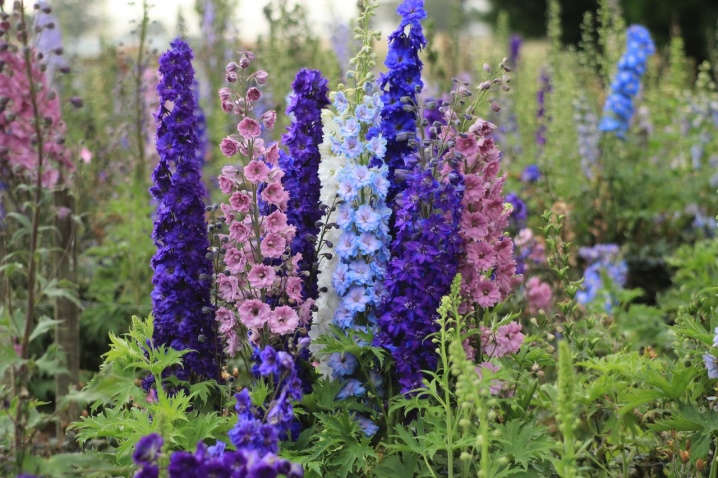
- Goldenrod - a tall herbaceous plant with paniculate inflorescences of yellow color.
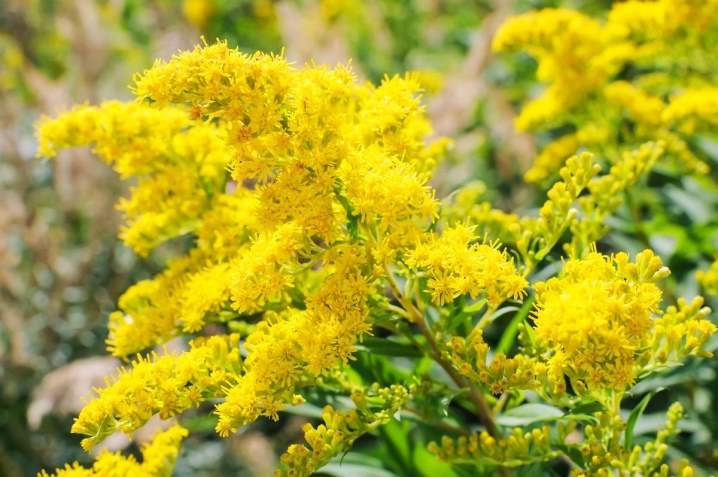
- Black cohosh or cimicifuga stands out for its decorative appearance: maroon, almost black leaf plates, the same color and stems. Inflorescences are elongated, white. The plant is also called "silver candles" for its unusual appearance.
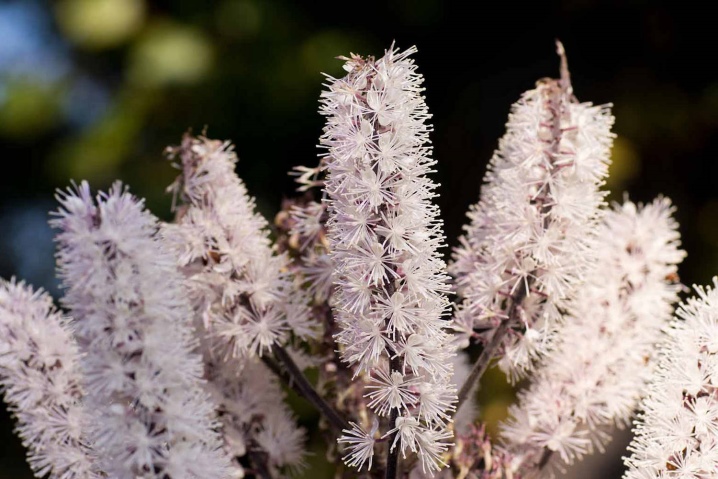
- Purple meadowsweet - a beautiful bushy plant with graceful crimson-pink paniculate inflorescences, but they can also be colored red.
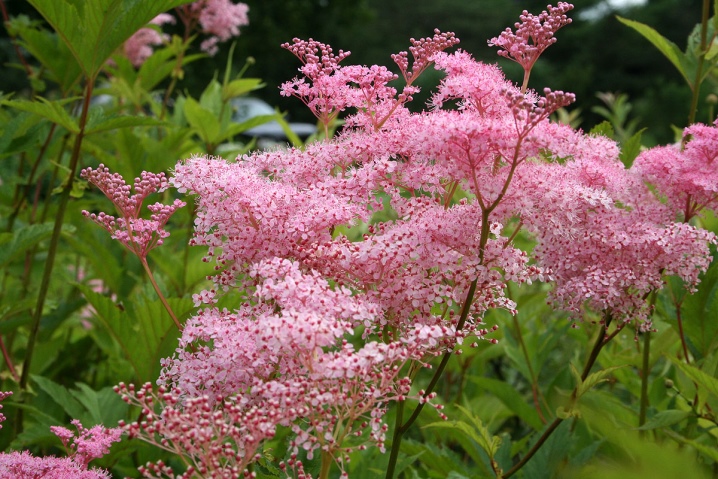
- Lily also has tall varieties, reaching 1.5 m. The flowers are funnel-shaped, with petals slightly bent back, which can have a different tone.
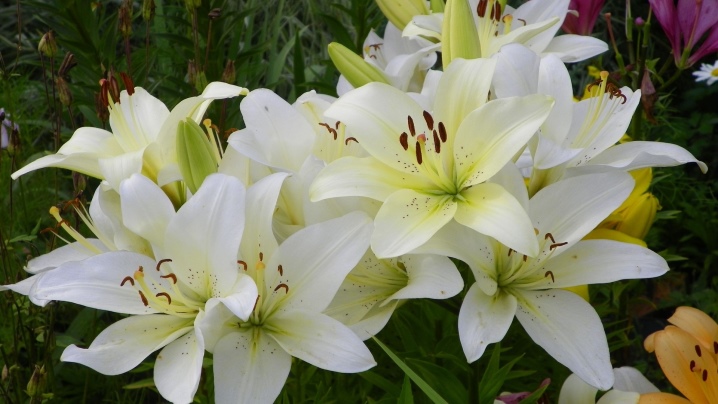
- Lupine possesses elongated racemose inflorescences reaching 1 m in length. They can be painted in a variety of shades.
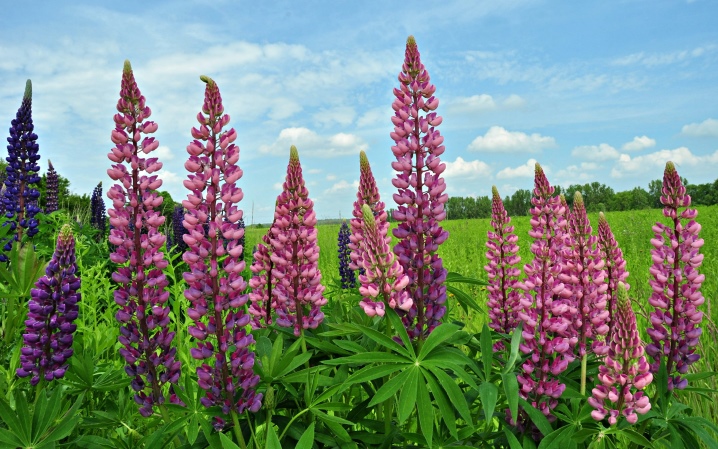
- Monarda has flowers consisting of a large number of funnel-shaped petals. The color is different, depending on the type of plant. Elongated toothed leaves have a delicate lemon-mint scent.
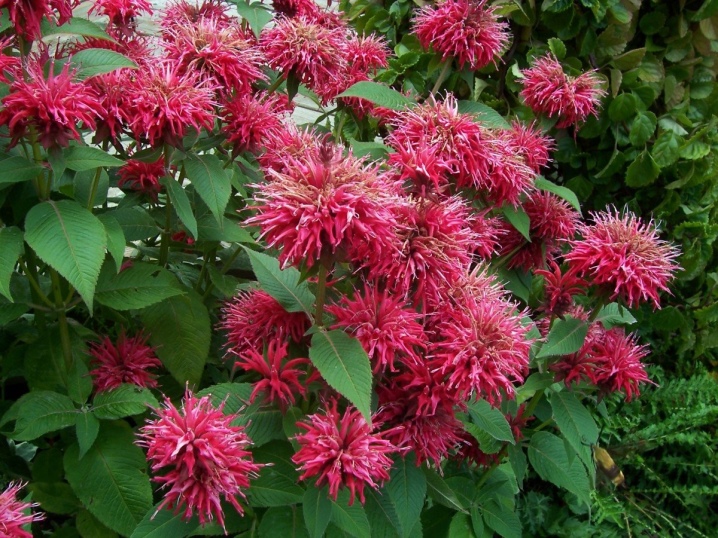
- Pion with its large, lush buds, which can have different colors, it takes first place among gardeners.
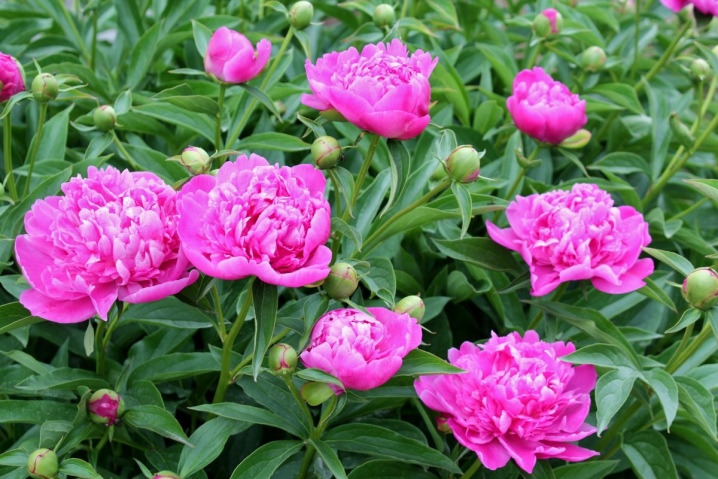
- Helianthus or willow sunflower reaches 2.8 m in height. The stem of the plant is strong, with elongated leaves, the inflorescence is yellow, with a brownish center. The flower is very similar to a small sunflower.
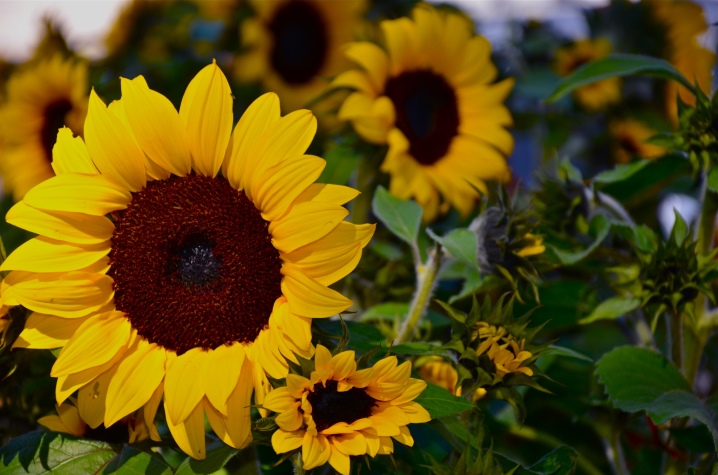
- Stock-rose or mallow has large, funnel-shaped buds. Inflorescences can have different shades: pink, purple, yellow, red, white.
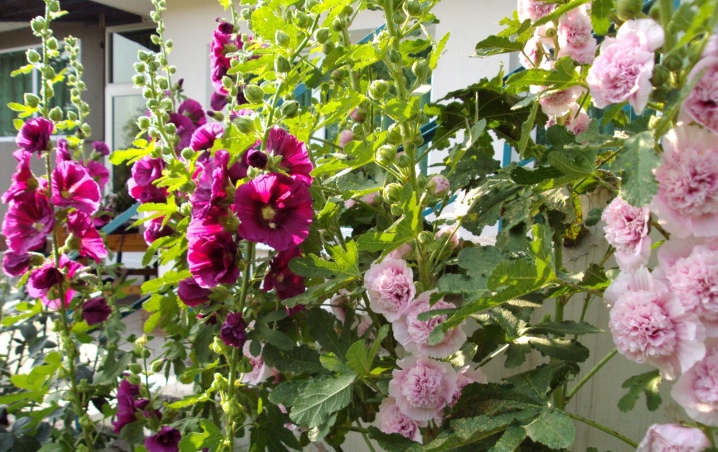
- Boneset differs in burgundy stems and long leaf plates. The inflorescences are in the form of baskets-scutes, usually they are purple, lilac or light lavender, but sometimes they are also white. At the end of flowering, the baskets acquire a silvery-white hue and look beautiful in dry bouquets.
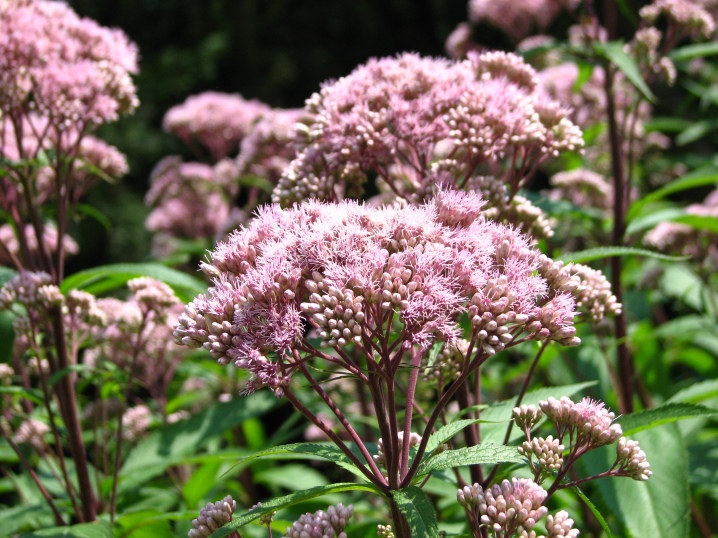
- Buzulnik with its small yellowish flowers, which gather in narrow inflorescences, will be a beautiful addition to any flower garden.
The leaves of the plant, which have a heart-shaped shape, have a decorative appearance; during the season they can change color, turning from green to crimson.
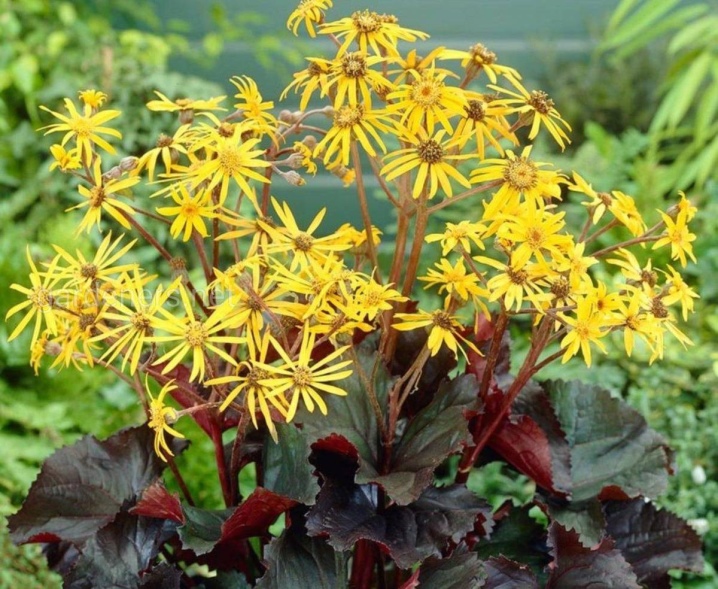
- Basil has unusual, fluffy, cloud-like inflorescences. They can have different colors: lilac, pale pink, yellow, white or lilac.
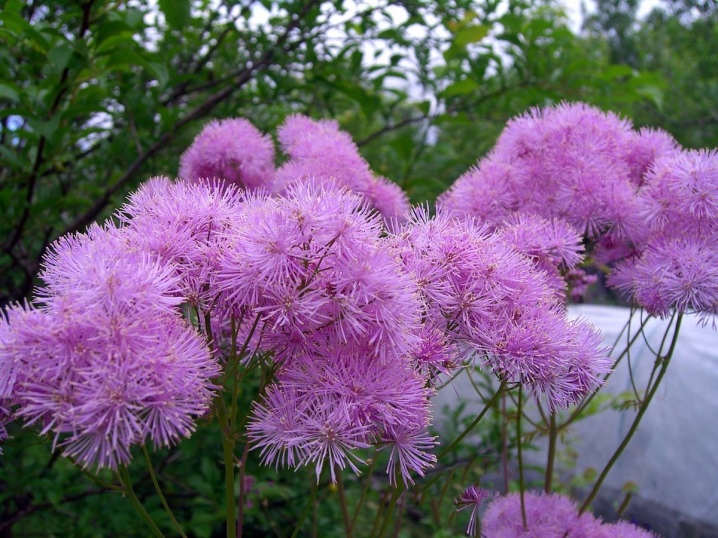
- Gladiolus differs in high racemose inflorescences. Lush buds can be colored in different shades.
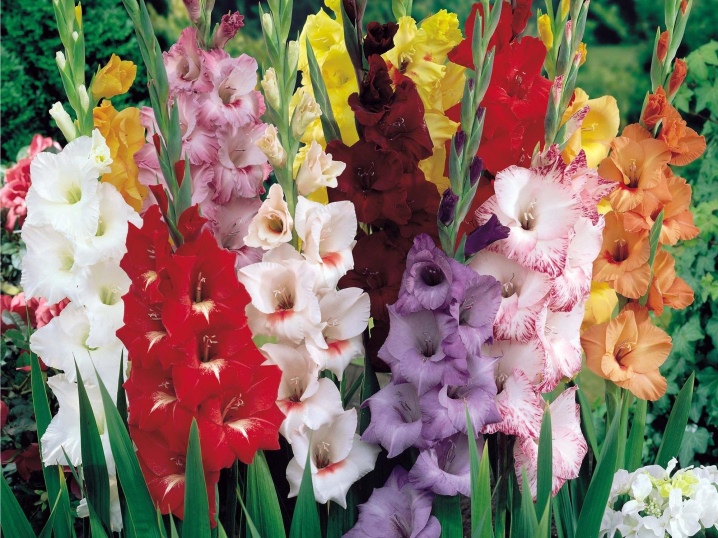
Blooming in autumn
Varieties that bloom in autumn seem to extend the summer on the site, they have their own beauty and sometimes look even more interesting than summer ones.
- Aster New English has a bush size of up to 2 m. Not too large flowers have a blue, lilac-purple, pink color.
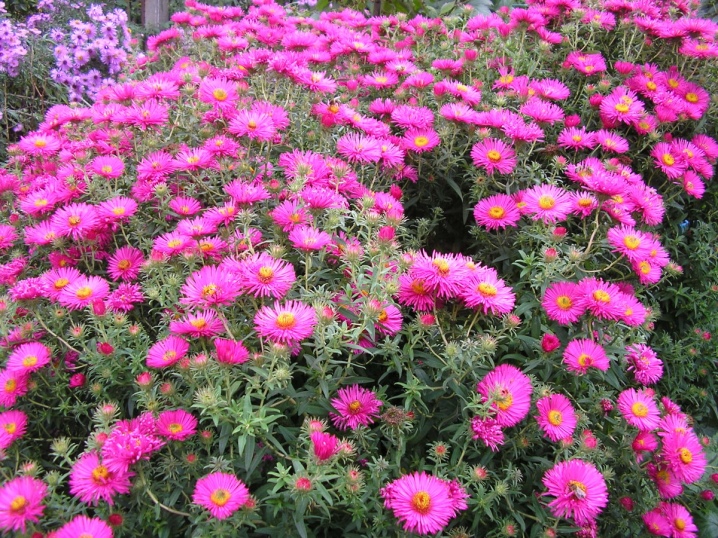
- Lakonos American or phytolacca can grow up to 3 m. The stems of the plant are branched, thick, oval leaf plates. It blooms with small white buds, then dark berries appear on the shoots.
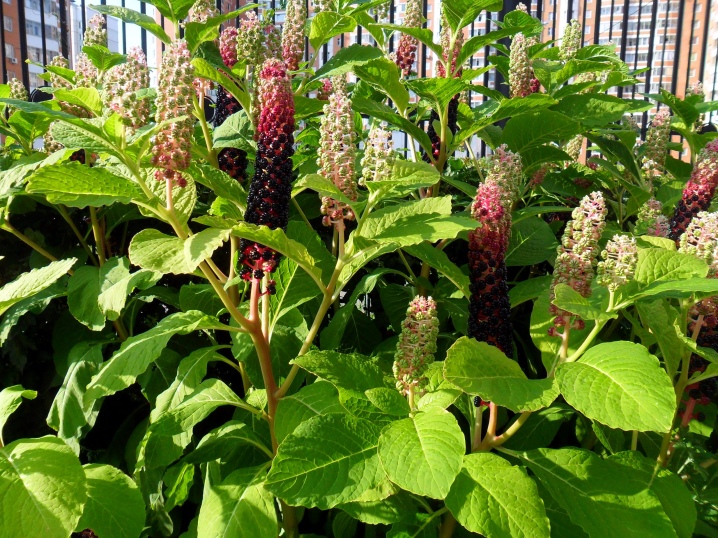
- Goldenrod has weakly branched shoots with corymbose inflorescences. The flowers are small, in the form of yellow bells.
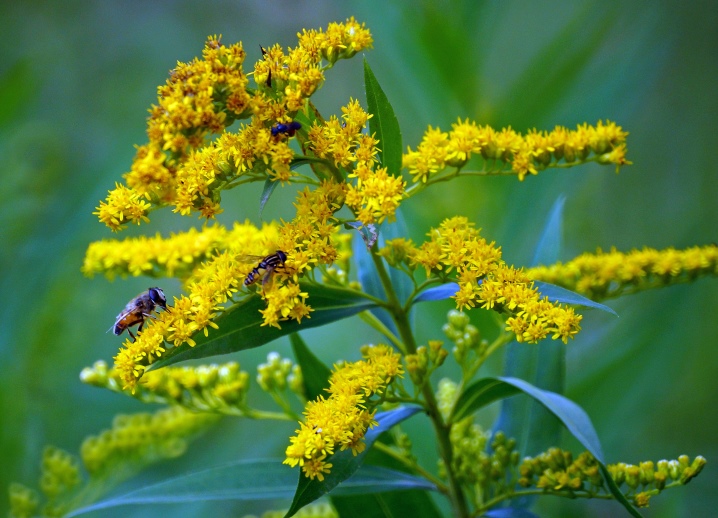
- Phlox also have tall varieties. The inflorescences of the plant are paniculate, they can be white, red, pink or blue. The buds have a pleasant aroma.
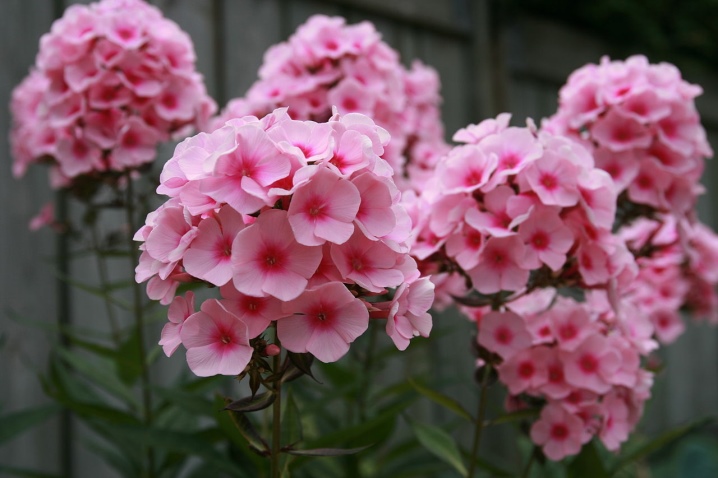
- Chrysanthemums characterized by a large number of species, among which there are quite high specimens. Depending on the variety, they can have both different sizes of buds and colors. They are famous for their good frost resistance.
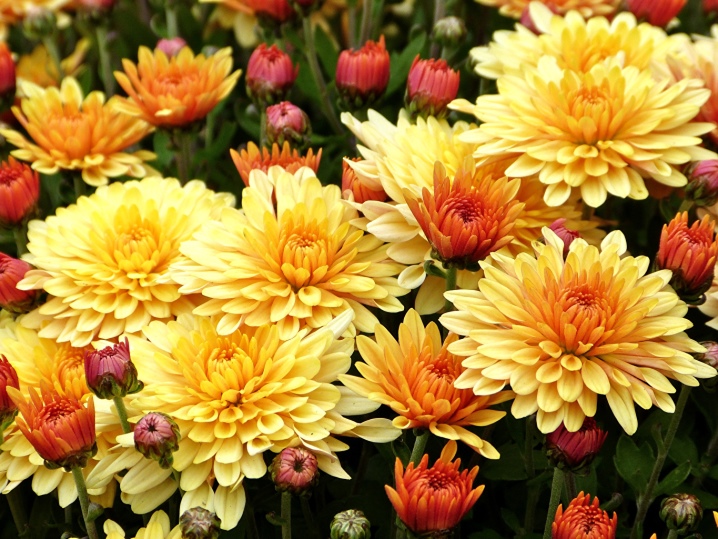
- Dahlias differ in a variety of species and colors, buds also have different sizes. They have a long flowering period.
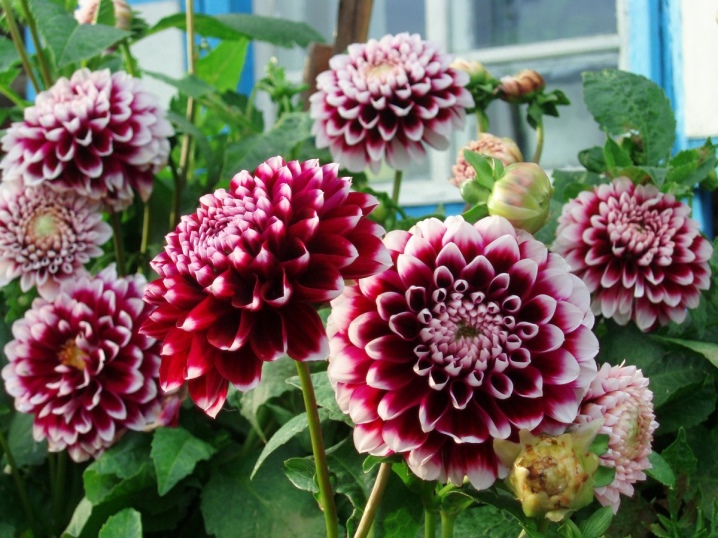
Unpretentious tall flowers
These plants are most appreciated by gardeners for the fact that that do not require special care rules, but grow almost independently.
- Volzhanka belongs to herbaceous perennials with large paniculate inflorescences, consisting of many tiny flowers of white or cream tone.
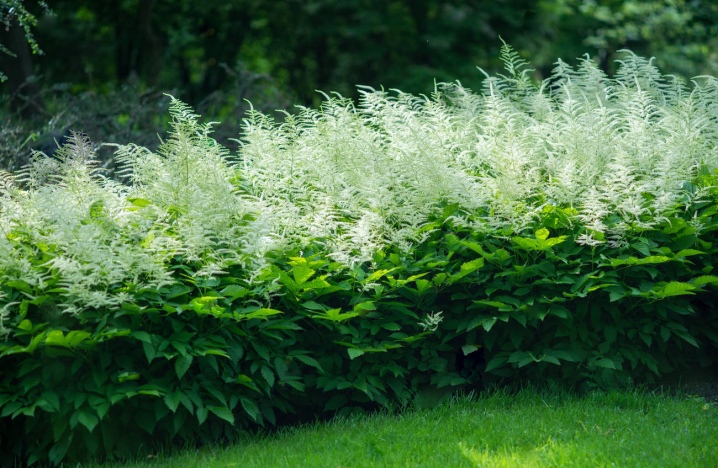
- Kniphofia - a beautiful perennial with dense inflorescences, the lower part of which is colored yellow, and the upper part is orange-red.
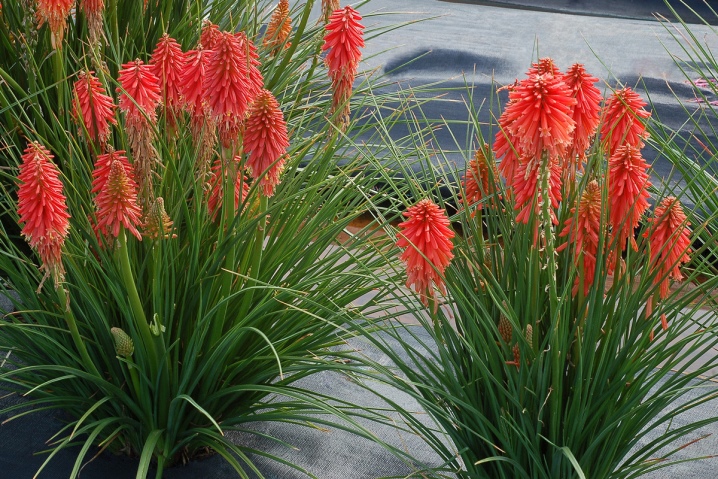
- Rudbeckia dissected will be an excellent addition to the flower bed, because it has both undersized and high varieties (up to 2 m). The flowers have yellow-orange petals and a green center.
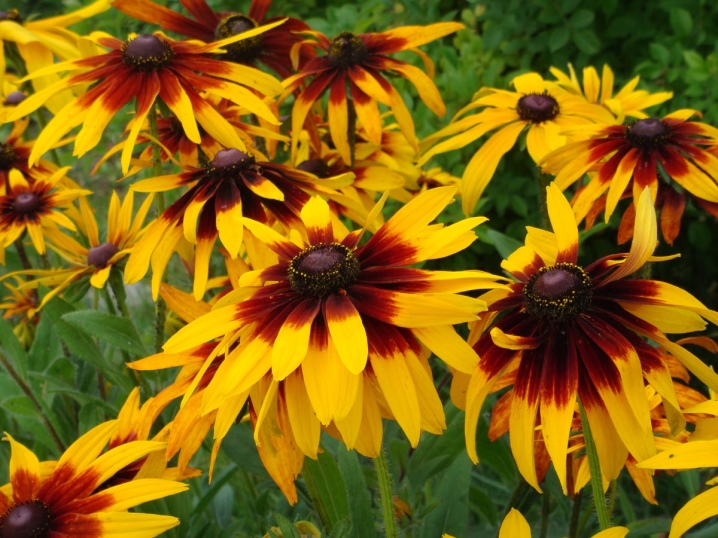
- Echinacea purple differs in inflorescences-baskets with a pointed center and purple-violet color of the petals.
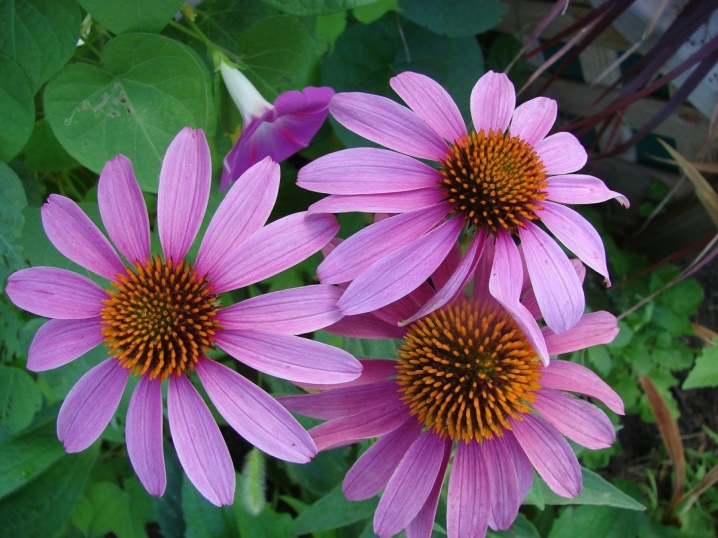
- Lobelia purple decorates the garden with bright red buds. Inflorescences are formed on the apical racemes.
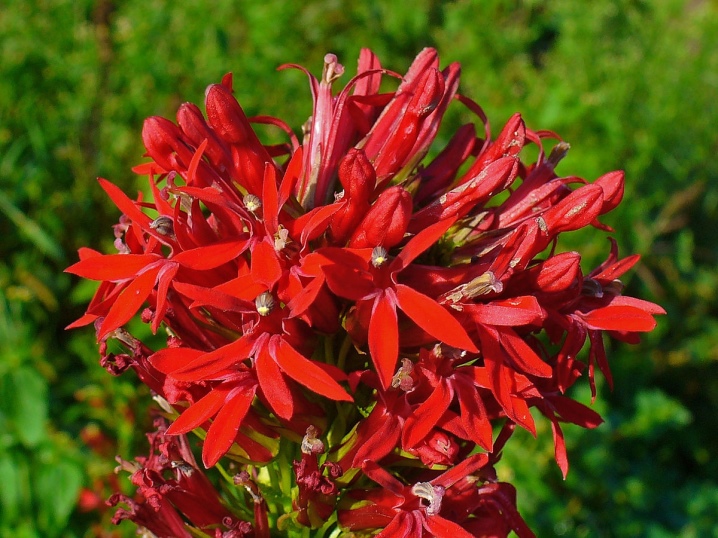
Tall flowers do not need special care, and most of them are generally unpretentious in maintenance. You just need to remember that many of them should be tied up, insofar as the stems cannot always support the weight of rather large buds. The best option in this case is nylon ties.
They can easily attach plants to a support, they can adjust the height, and, moreover, they do not damage the flower stems. You can also use wooden planks to keep your plants from leaning towards the ground.
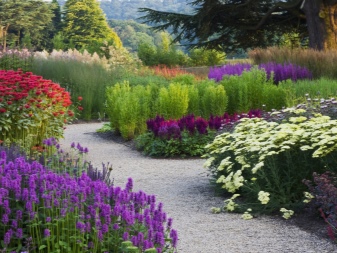
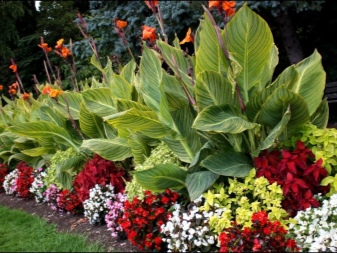
Examples in garden landscaping
Tall garden flowers are planted in different types of mixborders in the background or grouped by type.
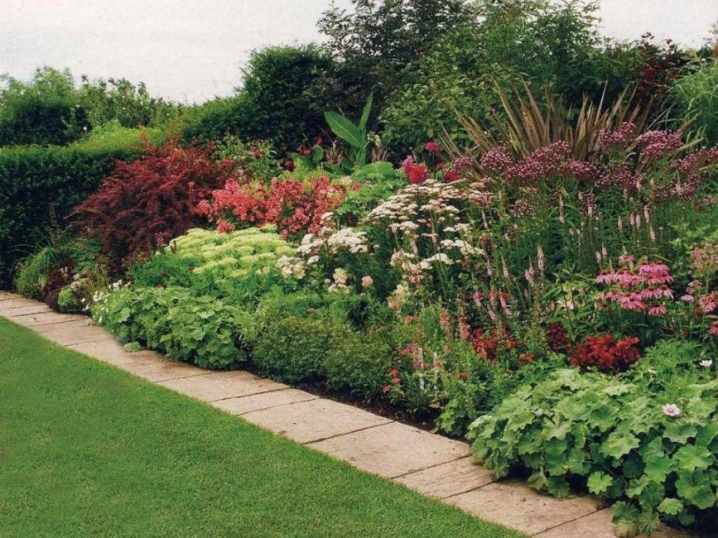
Tall perennials, correctly planted in round flower beds, look extremely beautiful.
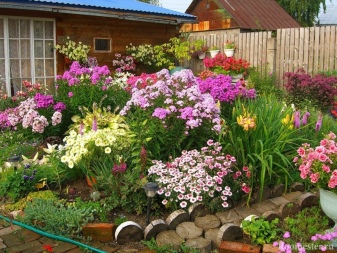
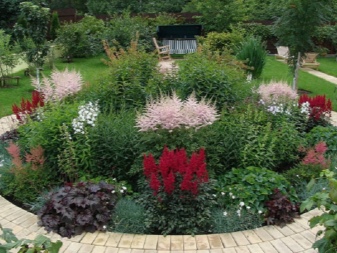
Serve tall flowers and a wonderful decoration of the alpine slides.
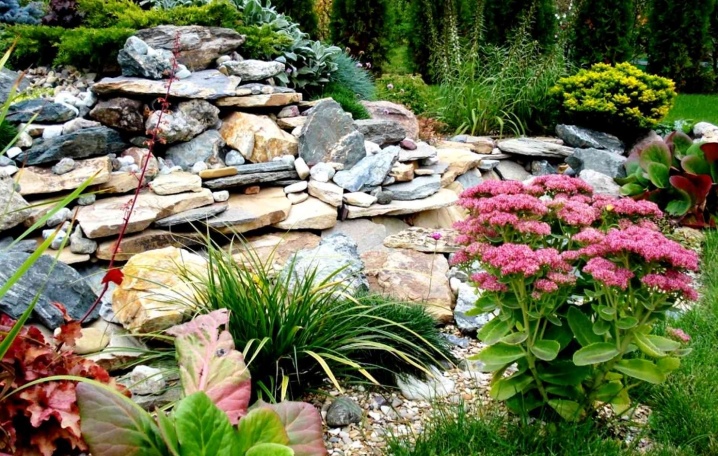
Such plants are planted near buildings and along fences.
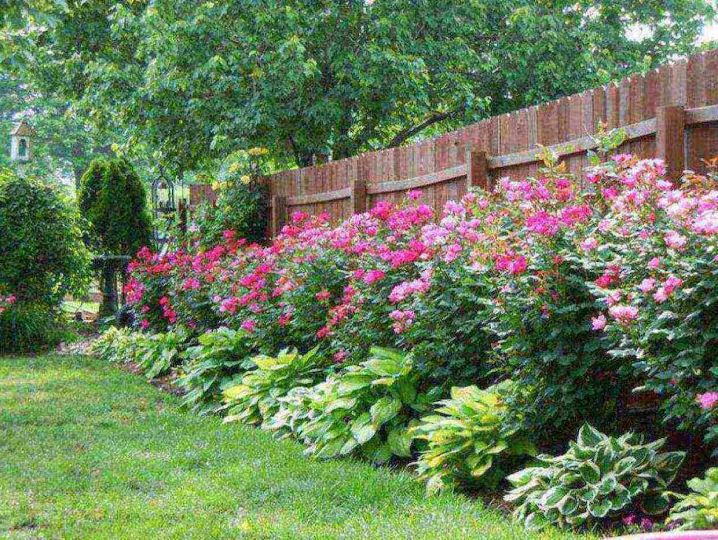
They also decorate paths in the garden, flowers look beautiful in multi-level plantings.
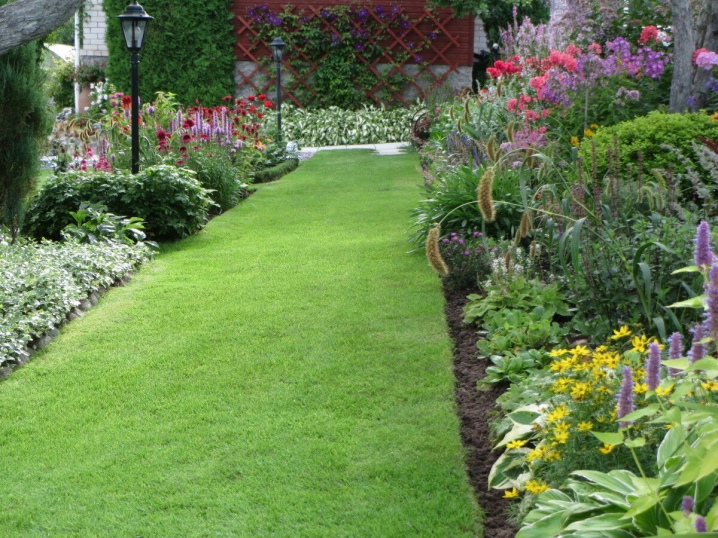
For the features of caring for tall garden flowers, see below.




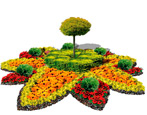
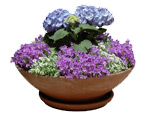
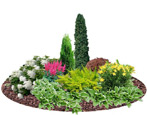
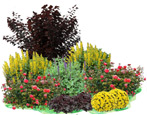

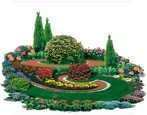
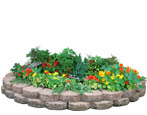
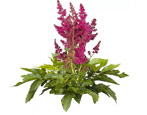

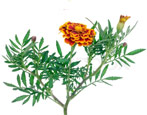
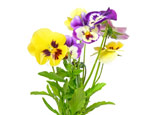

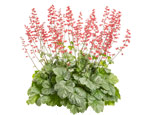

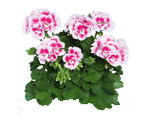
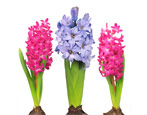
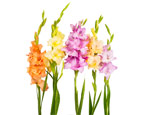

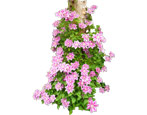
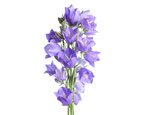
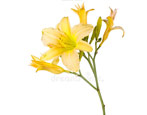
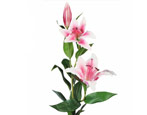
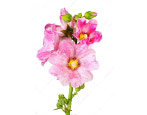
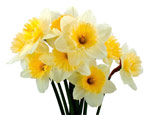
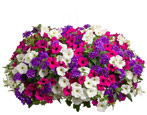
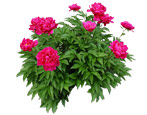
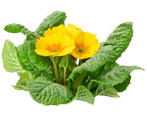
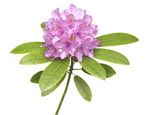
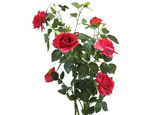
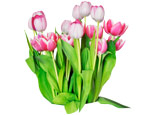
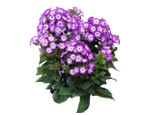
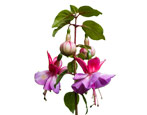
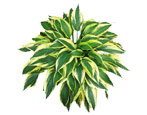
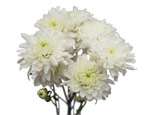
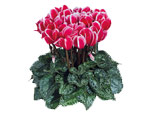
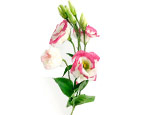































































Thanks. Very nice and convincing. We are your fans.
Things are good!
Geleniums are the best, they bloom for a very long time.
Thanks.
The comment was sent successfully.